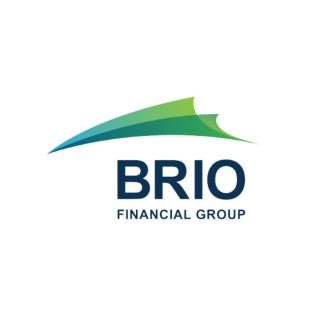
1099 Forms
by Brandon Miller on Feb 16, 2021
What is a 1099 form? This is a record of payment from an individual or entity, showing a payment, generated for your records. The individual/entity sends a copy to both the payee as well as the I.R.S.1
Who might be sending 1099s? Clients send their contractors 1099s, recording work performed. Banks send 1099s to reflect interest from a savings account. A state may send a 1099 for a tax refund. If the financial institution who handles your retirement account writes you a check, they will also send you a 1099.1
In any event, a 1099 includes the taxpayer identification number or Social Security Number of the payee. Receiving the 1099 does not automatically mean that the payee owes tax, as there could be situations that offset that income, but it definitely means that the I.R.S. also has a record of that payment.1
There are many types of 1099 form. Here are a few of them:
1099-A. This form is a consequence of foreclosure or bank repossession of secured real property such as one’s home if used for collateral for a loan, for example.1
1099-B. Brokers and barter exchanges report proceeds from securities, futures, commodities, or barter exchange transactions with a 1099-B.1
1099-C. The 1099-C reports debt cancellation. if you had at least $600 of debt cancelled during the year. This includes the cancellation of debt you owe for a home, like in the case of foreclosure. This form is sent if the debt was cancelled by a bank, credit union, the Federal Deposit Insurance Corporation (FDIC), the National Credit Union Administration (NCUA), the Resolution Trust Corporation (RTC), another lender or financial institution, the federal government, a department of the U.S. military, the U.S. Postal Service (USPS), or the Postal Rate Commission.1
1099-CAP. The 1099-CAP goes to shareholders who received at least $1,000 as cash, stock, or other property due to an acquisition of control or a substantial change in the capital structure of a corporation.1
1099-DIV. When you receive dividends, capital gain distributions, or liquidation distributions, you get one of these. For example, when a mutual fund sells off funds and realizes a capital gain, the fund informs you of your share of the capital gain through a 1099-DIV.1
1099-G. A 1099-G is used to report $10 or more of unemployment compensation, tax refunds you got from state and local governments, agricultural payments, or taxable grants you received.1
1099-H. Your health insurance provider will send you a 1099-H if you had any portion of your health insurance premiums paid with advance payments from the health coverage tax credit (HCTC.)1
1099-INT. This form reports interest income of $10 or more, and sometimes other tax items related to interest income.1
1099-LTC. This form reports distributions from extended care insurance contracts and accelerated death benefits paid out as a result of a life insurance contract or a viatical settlement.1
1099-MISC. This category includes “miscellaneous income,” including awards and prizes.1
1099-OID. The 1099-OID reports the difference between the stated redemption price of a bond at maturity and the issue price of that bond.1
1099-PATR. This form reports patronage dividends, such as in a farm cooperative.1
1099-Q. Have you been paying for school expenses from a 529 plan or a similar savings plan? Withdrawals will be reported on this form.1
1099-R. The 1099-R reports distributions from all types of retirement, pension, and profit-sharing plans as well as any IRA or annuity contract.1
1099-S. The 1099-S reports gross proceeds from real estate transactions or exchanges.1
1099-SA. This form reports distributions from Health Savings Accounts (HSA), Archer Medical Savings Accounts (Archer MSA), or Medicare Advantage Medical Savings Accounts (MA MSA).1
Questions? Be sure to talk with a qualified tax professional or qualified financial professional today; they can help you generate, request, and understand any of the above 1099 forms in question. We invite you to reach out to our firm directly at (415) 623-2450 or by email at info@briofg.com.
This material was prepared by MarketingPro, Inc., and does not necessarily represent the views of the presenting party, nor their affiliates. This information has been derived from sources believed to be accurate. Please note - investing involves risk, and past performance is no guarantee of future results. The publisher is not engaged in rendering legal, accounting or other professional services. If assistance is needed, the reader is advised to engage the services of a competent professional. This information should not be construed as investment, tax or legal advice and may not be relied on for the purpose of avoiding any Federal tax penalty. This is neither a solicitation nor recommendation to purchase or sell any investment or insurance product or service, and should not be relied upon as such. All indices are unmanaged and are not illustrative of any particular investment.
Brio Financial Group is a registered investment adviser. Advisory services are only offered to clients or prospective clients where Brio Financial Group and its representatives are properly licensed or exempt from licensure. No advice may be rendered by Brio Financial Group unless a client service agreement is in place.
Citations:
1. Policygenius.com, March 17, 2020
